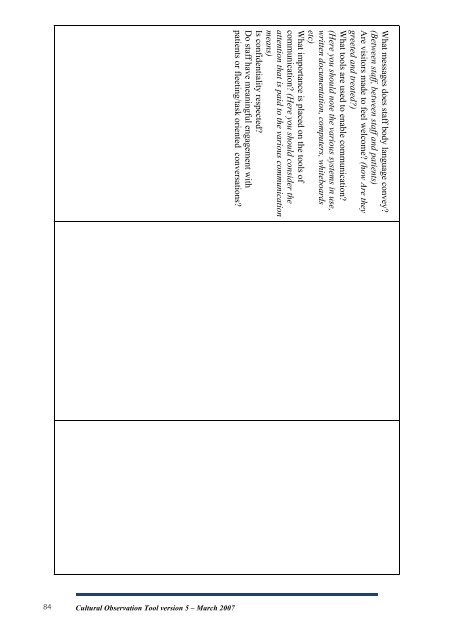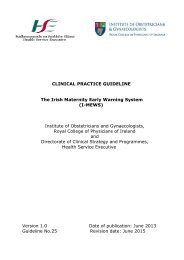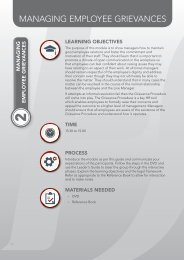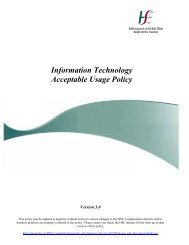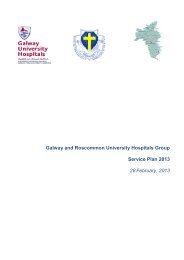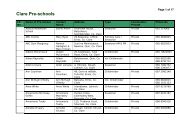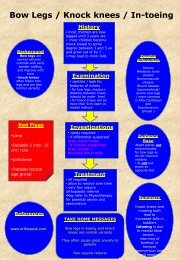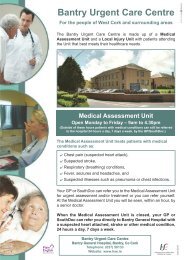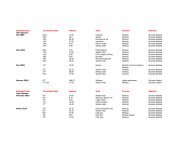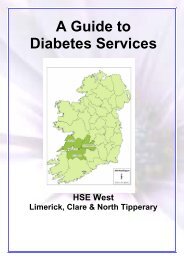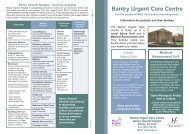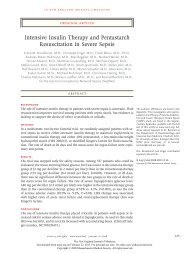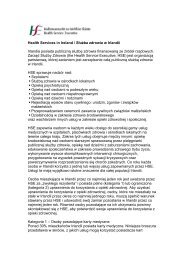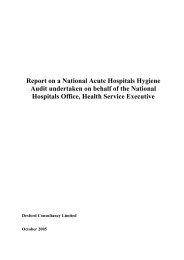Enhancing Care for Older People - Health Service Executive
Enhancing Care for Older People - Health Service Executive
Enhancing Care for Older People - Health Service Executive
You also want an ePaper? Increase the reach of your titles
YUMPU automatically turns print PDFs into web optimized ePapers that Google loves.
Cultural Observation Tool – version 4 13<br />
84<br />
Workplace<br />
Culture<br />
Critical<br />
Analysis<br />
Tool<br />
ORIGINAL AUTHORS OF THE WCCAT<br />
o Brendan McCormack, Professor of Nursing Research University of Ulster and<br />
Director of Nursing Research and Practice development, Royal Hospitals Trust,<br />
Belfast.<br />
o Elizabeth Henderson, Lead Cancer Nurse, Northern Ireland Cancer Network.<br />
o Dr Val Wilson, Director of Nursing Research & Practice Development, the Children's<br />
Hospital at Westmead, NSW, Australia.<br />
o Jayne Wright, Research Associate, University of Ulster<br />
April 2007<br />
What importance is placed on the tools of<br />
communication? (Here you should consider the<br />
attention that is paid to the various communication<br />
means)<br />
Is confidentiality respected?<br />
Do staff have meaningful engagement with<br />
patients or fleeting/task oriented conversations?<br />
written documentation, computers, whiteboards<br />
etc)<br />
What messages does staff body language convey?<br />
(Between staff, between staff and patients)<br />
Are visitors made to feel welcome? (how Are they<br />
greeted and treated?)<br />
What tools are used to enable communication?<br />
(Here you should note the various systems in use,<br />
The WCCAT has been developed to help people involved in the<br />
development of practice to undertake observational studies of work<br />
place settings in order to in<strong>for</strong>m changes in practice. The tool is<br />
suitable <strong>for</strong> use by anyone who has some experience of practice<br />
development including the observation of practice. The tool has<br />
been developed from an analysis of our experience of leading and<br />
facilitating practice development programmes over many years.<br />
Observation is one of the key tools used in emancipatory<br />
practice development – a <strong>for</strong>m of practice development that is<br />
concerned with changing the culture and context of practice in order<br />
to develop sustainable person-centred and evidence-based<br />
workplaces. Seeing practice, raising consciousness about taken <strong>for</strong><br />
granted practices and reflecting on taken <strong>for</strong> granted assumptions<br />
are key components of comprehensive observation. This tool is<br />
designed to help you develop a systematic approach to undertaking<br />
these activities.<br />
We encourage you to use this tool and would welcome<br />
your feedback on its relevance and usability in your practice<br />
development work.<br />
Contact<br />
Brendan McCormack: bg.mccormack@ulster.ac.uk<br />
Liz Henderson liz.henderson@bch.n-i.nhs.uk<br />
<strong>for</strong> further in<strong>for</strong>mation.<br />
Cultural Observation Tool version 5 – March 2007 1<br />
84


